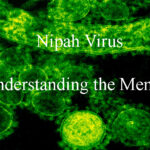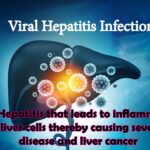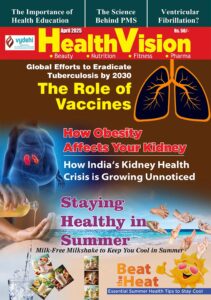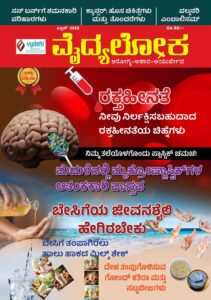Covid – 19 infection: other zoonotic infections and social life.The danger of this novel corona virus 2019 nCoV or Covid-19 infection has caused economic spasm, human tragedy and social paralysis.
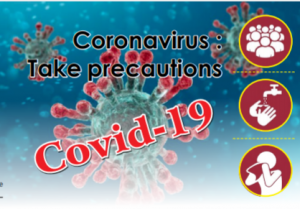

With expanding human population, traditional animal territory is being encroached on. Animal and human contact increases probability of novel germs being transferred from animals to humans. And if food consumption patterns change, with it comes the problem of zoonotic infections or disease causing microbes being transferred from animals including non-veg food to humans.
Corona virus refers to a big family of viruses – there are approx. 200 types of corona virus – many cause routine common cold infection. Similarly, rhinoviruses are also a cause of the common cold infection in humans. However, the recent corona virus from epicenter Wuhan, Hubei province, China is a sub-type apart from all other corona viruses. Various theories are afloat as to the origin of this virus in humans:
1.Consumption of bat soup and other forms of wild animal food (there are bat corona viruses)
2.This novel new corona virus may have come from the wet non-veg wildlife food market of Wuhan where snakes, bats and other wildlife meat (including live animals such as dogs too) is sold in the open.
3.Or it could be a leak from the Wuhan National Biosafety Lab level 4 (where a novel bioengineered virus could have escaped).
None of above points are proven, however, the danger of this novel corona virus 2019 nCoV or Covid-19 infection has caused economic spasm, human tragedy and social paralysis in China and now rest of world. Wuhan corona virus 2019 nCoV or Covid-19 causes death mainly through respiratory collapse including due to lung infection or pneumonia. Other common cold infection symptoms such as sneezing, headache, fever, sore throat, runny nose, cough and nasal congestion may occur.
Some patients did not show any initial respiratory symptoms, only gastrointestinal symptoms diarrhea and nausea – so by the time they were diagnosed and quarantined they had already infected many people including medical professionals. The corona virus infection is a droplet infection, spreads through casual contact, and air borne droplets. As per WHO release of 27.2.2020, ‘when someone who has Covid-19 coughs or exhales they release droplets of infected fluid’. Hence, in prone areas it is a good idea to wear face or mouth masks, the best bet is the N95 mask – however, ordinary face masks will also do.
The other important take-care precautions are:
1. It is also important to wash hands with disinfectant, avoid touching the face frequently as also casual inter-personnel contact and other commonsensical approaches of hygiene and personal safety.
2. Drinking water (preferably warm) on and off to ensure oral cavity and throat is not parched helps as secretions are continuously drawn towards acidic stomach where germs die.
3. If you see someone coughing, sneezing or looking sick, keep a distance of minimum 1 m from them.
4. In places suspected to have corona virus patients, it is better to avoid crowds since infected carriers do not show symptoms but may be in the crowd and can spread the germ easily.
5. Invisible corona virus infected droplets present on door knobs, outside of face mask, desk surfaces, cups, digital devices etc definitely are sources of contamination and spread of infection. When people touch such surfaces and then their face or eyes there is sure shot transmission of infection.
6. The contaminated surfaces may have live corona viruses for upto 48 hours. Regular hand wash and not sharing towels is vital for safety.
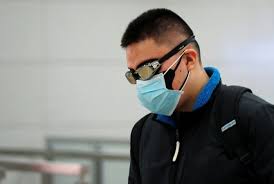

Zoonotic infections not new to India:
Zoonotic infections that have origin in animals and wildlife are not new to India. The list is big: major public health zoonotic diseases in India include Rabies, Brucellosis, Toxoplasmosis, Cysticercosis, Echinococcosis, Japanese Encephalitis (JE), Plague, Leptospirosis, Scrub typus, Nipah, Trypanosomiasis, Kyasanur forest disease (KFD) and Crimean-Congo haemorrhagic fever (CCHF).
Helminthiasis or worm infestation happens through improperly cooked food – including non-veg food, and is sourced from contaminated water and food. Worm infestation is commonly understood to be an intestinal infestation. However, worms can break through the intestine; enter blood stream and cause fatal or life threatening situations. These include cysts in the brain and other organs:
1. Neurocysticercosis due to pork tapeworm larvae in brain
2. Cystic hydatid disease in liver and lung due to dog tapeworm larvae
3. Eye cysticercosis – cysts or swellings due to larvae in eye
4. Generalised muscular and submucous and cutaneous infestation
Thus, zoonotic infections like the Covid-19 viral infection, worm infestations and other animal to human infections, pose a potential or actual threat to health and social life. It is imperative we take adequate care – avoid possible contamination through impure water and food. Once health is lost, wealth loss is inevitable; hence, prevention is better than cure. In active social life, eating out at hygienic joints manned by trained service personnel and cooks is critical. Do not go only by the restaurant’s presentation – hygiene in kitchen, processing of the procured raw materials and hygiene practices of cooks and workers are vital to quality of food.
How to avod zoonotic infections?


1. Avoid close contact with people who are sick
2. Avoid touching your eyes, nose, and mouth with unwashed hands
3. Stay home when you are sick
4. Cover your cough or sneeze with a tissue, then throw the tissue in the trash
5. Clean and disinfect frequently touched objects and surfaces using a regular household cleaning spray or wipe
6. Use face mask if recommended by doctor
7. Wash your hands often with soap and water for at least 20 seconds, especially after going to the bathroom; before eating; and after blowing your nose, coughing, or sneezing.
8. If soap and water are not readily available, use an alcohol-based hand sanitizer with at least 60% alcohol. Always wash hands with soap and water if hands are visibly dirty.
It is better to practice prevention, wish you good health, and an active great social life!


Sunil S Chiplunkar
B Pharm M Pharm (Pharmacology) MBA (Marketing) PGDHRM (PhD – Pharmaceutical Sciences)
VP – Business Development, Group Pharmaceuticals, Bangalore-560055
Ph: 080 2337 6766 Mob: 6364578669
Email: 1969sunilchiplunkar@gmail.com




